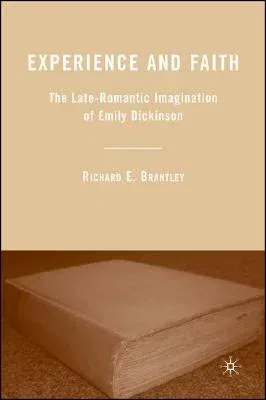R Brantley
(Author)Experience and Faith: The Late-Romantic Imagination of Emily Dickinson (2005)Hardcover - 2005, 24 January 2005

Qty
1
Turbo
Ships in 2 - 3 days
In Stock
Free Delivery
Cash on Delivery
15 Days
Free Returns
Secure Checkout

Print Length
275 pages
Language
English
Publisher
Palgrave MacMillan
Date Published
24 Jan 2005
ISBN-10
1403966303
ISBN-13
9781403966308
Description
Product Details
Author:
Book Edition:
2005
Book Format:
Hardcover
Country of Origin:
US
Date Published:
24 January 2005
Dimensions:
24.13 x
16.05 x
2.31 cm
ISBN-10:
1403966303
ISBN-13:
9781403966308
Language:
English
Location:
New York
Pages:
275
Publisher:
Weight:
566.99 gm